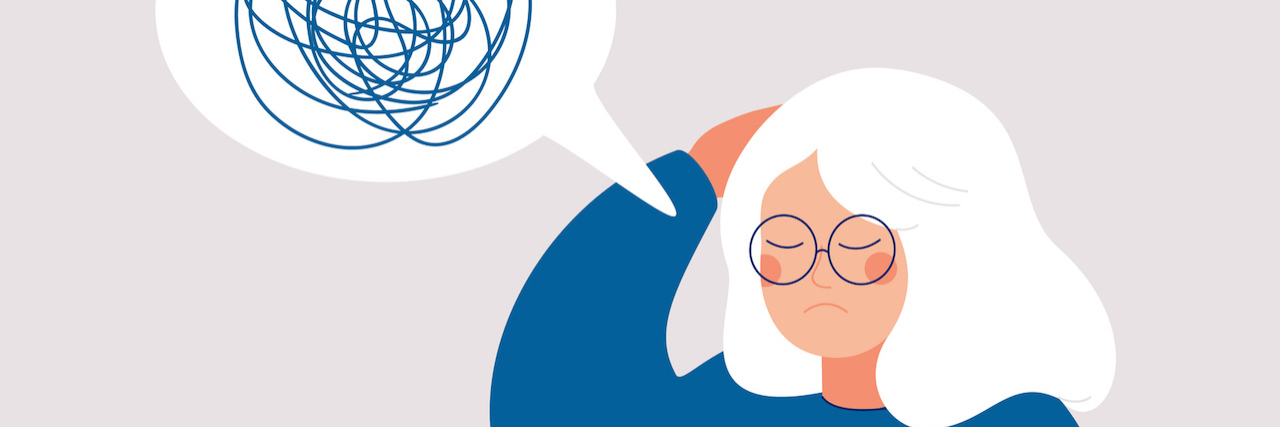When You're Forced to Prioritize Your Chronic Illness Over Your Mental Health
Editor's Note
Join The Mighty’s Spoonie Life Hacks group to get tips for tackling everyday tasks from people living with chronic illnesses — or to share your own hacks!
Last month is the first time I started therapy. I’ve dealt with anxiety, C-PTSD (complex post-traumatic stress disorder), obsessive compulsive disorder (OCD) depression, an eating disorder and I’ve been on a journey of trying to get diagnosed with autism. I’ve done extensive research on psychology, so why have I waited 31 years to get help if I’ve dealt with these issues all my life?
Well there isn’t an easy answer for that. It’s always been complicated. The main reason that prevented me from going to therapy was a mixture of dealing with my chronic illnesses and issues with insurance.
Since I was born with a congenital heart condition my issues with my heart always came first. Fighting with insurance and doctors meant I could only prioritize certain health issues. Mental health isn’t something that is talked enough about for those who deal with chronic illness. When I had complications after one of my open heart surgeries in high school, I has severe PTSD. Instead of any of my doctors noticing that I was in trouble after my surgery, I was only asked how I was doing physically. When I would think maybe it’s time to say something, maybe it’s time to get help, I would hit another road block with insurance or my health and I would have to focus on my physical health first over my mental health. I just recently had my third open heart surgery and I finally feel like my heart condition isn’t the first thing I have to worry about. This is why we need to educate our doctors to be on the lookout for those with chronic illnesses.
I’m also a person who needs to be directed to a place and needs clear directions or referrals. Well since therapist and psychologists don’t work on referrals, you need to call usually through a number on the back of your insurance card (if you are going through your insurance). Several times in my adulthood I would say to my primary care that I needed help and I wanted to go to therapy. They would often refer me back to the number to call on the back of my card and that was it. I had no other direction. This didn’t relieve my anxiety. It didn’t tell me if I had to pay, what kind of services would be provided. I finally reached out to a friend who had the same insurance as I did and she walked me through the whole thing. I finally was able to understand the process and that was how I finally found my therapist. If a doctor would have taken the time and walked me through the process of finding a therapist I might have done it sooner.
I’ll be honest, mental health stigmas has played a big part in why I didn’t go to therapy. My family’s views were that if I went to therapy I would be put on medication and my parents were always again medication, my father in particular. For a long time I understood his warning, I didn’t want to be medicated and I still don’t, but that doesn’t mean I can’t get help or should be afraid of getting help. So, I lied as much as I could to my friends and family. I would say I was fine when I wasn’t. In high school I hid the fact that I was starving and cutting myself. My parents would threaten to send me to a place to get help. I didn’t want to “seem weak.” If my parents could always deal with it then I didn’t want to the weak one and “give in” to therapy. I could handle it. I also didn’t want to be in a hospital again because I had PTSD from my heart surgery in high school, so I would lie and say I’m fine and they are being dramatic. Then, I would start to get better temporarily. What’s funny is that part of me wanted them to not threaten me, but to actually get me help. But my dad would believe me and my mum wouldn’t want to fight the both of us.
This is why we need to end these stigmas. First of all there is nothing wrong with being on medication. Sometimes our brains just need that extra help. There is nothing “weak” or “powerless” about getting help. If you are struggling, please get help. Mental illness stigmas are a powerful thing. They can prevent people from getting the help they need for many years.
What are some stigmas that have held you back from getting the help you needed? Has a chronic illness affected your mental health?
Getty image via Ponomariova_Maria

